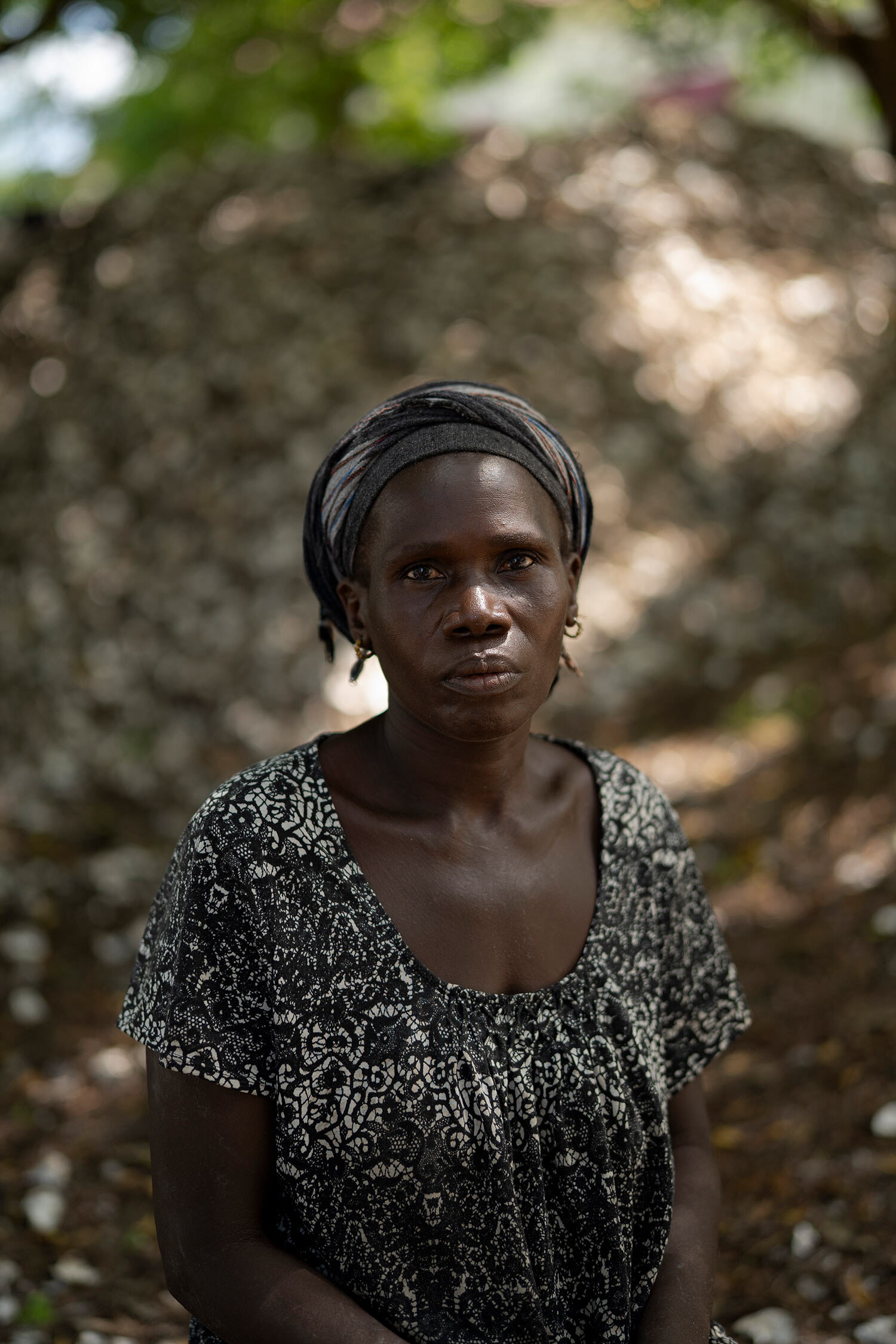Gambian women's voices on COVID-19 vaccines and the pandemic

Women in Gambia on average have five children as cultural traditions favor large families, some expanded further through polygamy. Many Gambians are sustenance farmers whose children start helping them with chores from an early age.
Here are their concerns, in their words.
LUCY JARJU, 53, NOT VACCINATED
Jarju lost her husband a decade ago and is the sole income provider for her family. Four of her seven children live at home, along with her daughter-in-law and three granddaughters.
"What if I get it and the vaccine does not work with my blood and brings me difficulties? I was told to go and take the vaccine but I said that I was scared. If I take the vaccine and I can't move again, what will I do? I have no one to help me, that’s why I’m scared.
"I can’t deny the fact that it exists; it does exist. I’m only scared about the vaccine. It’s my only concern. The way I hear people talking about it, that’s why I’m scared."
___
OUMIE SAMBOU, 50, NOT VACCINATED
Sambou's husband is older and can no longer work so she alone brings in money to feed their five children.
"Our life since the coronavirus arrived has been very difficult. No one had anything, and no one was able to work. If I do not wake up and go to work at the water, I will not have anything for my children.
"This season our sales were very poor; nothing is good. When COVID-19 broke out, we were told that no one should work. For us if we sit at home without going to work, what do you expect us to give to feed our children? If your husband isn't strong enough to work and you both sit at home, how will you survive this along with your children?
"I’m not convinced to accept the vaccine. My mind did not accept it; this is why I said I will not take the vaccine."
___
MADELINE SAMBOU, 66, VACCINATED
Sambou, a mother of three, says she ultimately got a COVID-19 vaccine after relentless pressure from her grown children.
"When I took the vaccine, it did not cause any problems. I went, took it and came back and I was able to cook my food, do the laundry, and all my activities. There was no problem.
Since I took it people were saying :“You are definitely strong. The injection vaccine did not cause any problems for you, you are doing your work."
___
SABEL JATTA, 60, CONSIDERING THE VACCINE
Jatta, a mother of seven, says she has not known anyone with COVID-19 in Gambia “but it exists in the country.”
"I’m not scared of the virus. I’m scared of the vaccine.
"The vaccine they are giving abroad is better than the one they give here. The one given here is not good.
"I have seen my children that have taken the vaccine. Now it’s only me that have not taken it ... but I will go again.”
___
ROSE JATTA, 49, NOT VACCINATED
Jatta suffers from some chronic health issues but still goes out in search of food on the river each day all the same. She fears the vaccine could make her sicker, leaving her two children without food on the dinner table.
“I'm the breadwinner of the family. My kids only depend on me. Who will help my family if I cannot work?”
___
FATOU JATTA, 66, NOT VACCINATED
Jatta, a mother of three, has no plans to get the vaccine.
“We are afraid of the vaccine. Some people will take it and will have more problems in their bodies. You can take the vaccine, and it will bring problems for you.
“I'm not taking it. My body can’t handle it.”
____
ANTA SAMBOU, 66, NOT VACCINATED
Sambou, a mother of six, knows the virus exists but doesn't want the jab.
“I saw the ambulance carrying dead bodies, but for us since the pandemic broke out what they had told us is, when you are going out you should wear a face mask. If I enter in a car I will put a mask.”
____
LAMA MBALLOW, 24, NOT VACCINATED
Sara Gibel, where the 24-year-old mother lives, is 5.5 kms (3 miles) away from the local hospital. Mballow, mother of one and pregnant with another child, has no plans to get vaccinated after giving birth. She says that in her village a lot of people are afraid of the vaccine. “I don’t want to give a problem to my baby. Yes, that’s why I’m afraid”, says Mballow. Her community relies on the farming of groundnuts and corn and when the rainy season is over they go back to the bush to cut the dry trees to sell it.
____
FATOU JANHA MBOOB, 67, VACCINATED
Mboob is head of the TRY Oyster Women’s Association, which represents more than 500 women in Gambia. She has worked to educate the association's members and her staff about COVID-19.
"Every time we had a meeting we would spend 10 minutes educating the women. I would tell them about my friends and relatives who had died of COVID-19.
“I took (the vaccine) when it was being offered to the health workers who did not want to take it. So I went in. And then when I got it, I tried to convince my workers around me _ my house helpers, my staff _ to take it. It wasn’t easy for all of them. I mean, they just didn’t believe in taking that vaccine. So my condition was: You either take the vaccine or you cannot come to my house, to work, to the office. So through that, they took it reluctantly.”
___
Photos by Leo Correa
Visual artist and Digital Storyteller at The Associated Press














